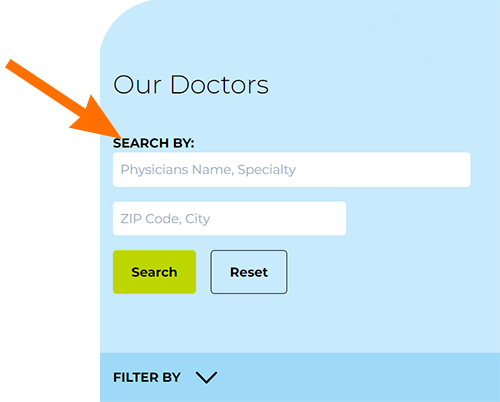February marks American Heart Month, a time to prioritize the vital muscle that keeps us alive and well. While heart disease remains the leading cause of death in the United States, the good news is much of it is preventable! This month let’s focus on actionable steps we can take to protect our hearts and embrace a healthier future.
1. Know Your Numbers
The first step to taking charge of your heart health is understanding your personal risk factors.  It’s essential to get your blood pressure, cholesterol, and blood sugar checked regularly. Discuss these numbers with your doctor and create a personalized plan to maintain levels within healthy ranges. At Hill Physicians, we have over 5,600 physicians dedicated to giving you personalized care. You can find a doctor near you in the vast Hill Physicians network.
It’s essential to get your blood pressure, cholesterol, and blood sugar checked regularly. Discuss these numbers with your doctor and create a personalized plan to maintain levels within healthy ranges. At Hill Physicians, we have over 5,600 physicians dedicated to giving you personalized care. You can find a doctor near you in the vast Hill Physicians network.
2. Exercise Your Heart
Dr. Daren Primack, M.D., our esteemed Chief of Cardiology at Hill Physicians, underscores the pivotal role of exercise in nurturing heart health. “Exercise not only fosters cardiovascular fitness but also promotes arterial health,” Dr. Primack emphasizes. Physical activity can be done as moderate or intense, and the recommendation is:
- Moderate-intensity exercise: at least 20 minutes daily or 150 minutes per week
- Vigorous-intensity exercise: at least 10 minutes daily or 75 minutes per week
- Movement: an alternate is to break up your day with movement. Some examples include taking the stairs, walking during lunch break, join a dance class. Find activities you enjoy and make them a regular part of your routine!
3. Fuel Your Body
Dr. Primack advocates eating a balanced diet rich in fruits, vegetables, and lean proteins. Additionally, maintaining a healthy heart includes avoidance of tobacco and excessive alcohol consumption. Limit processed foods, saturated and trans fats, and added sugars. Remember, small changes like swapping sugary drinks for water or adding a serving of veggies to dinner can make a big difference.
The American Heart Association Heart-Check Food Certification Program:
4. Mind Your Stress for Heart Health
Chronic stress can take a toll on heart health. Practice stress-management techniques like mindfulness meditation, deep breathing exercises, or yoga. Spend time in nature, connect with loved ones, and prioritize activities that bring you joy.
5. Know Your Family History
The genetics of heart attacks are becoming more apparent. Understanding if heart disease is part of your family history is paramount in preemptive healthcare. Dr. Primack stresses the significance of familial predispositions and encourages individuals to be proactive in managing risk factors.
According to research by the American Heart Association, approximately 40-60% of the risk for cardiovascular disease lies in hereditary factors. This is controlled by our DNA, which is found within genes. Molecular biology or cytogenetic tests can determine one’s predisposition from genetic material. Genes can cause heart problems like high blood pressure and arteriosclerosis.
6. Get Proper Sleep to Prevent Heart Disease
Sleep plays a vital role in maintaining a healthy heart. “Not getting enough sleep not only affects our metabolism but also increases the risk of diabetes, hypertension, and heart disease,” Dr. Primack explains. Prioritizing good sleep – ideally 7-8 hours per night – is essential for protection from potential health issues.
7. Heart Disease: Gender-Specific Differences
Heart disease doesn’t discriminate based on gender, yet its manifestation often varies between men and women.
“Women tend to present with atypical symptoms,” Dr. Primack notes. “While men commonly experience chest tightness or pressure, women may exhibit a broader range of symptoms, including fatigue, shortness of breath, or nausea.” This variability can complicate diagnosis, highlighting the need for heightened awareness among healthcare providers and patients alike.
Moreover, physiological disparities exist between male and female hearts. “Women often have stiffer hearts,” explains Dr. Primack. He shares that stiffness can impede blood flow into the heart chambers, predisposing women to conditions like heart failure. Recognizing these nuances is crucial in delivering effective care and addressing the unique cardiovascular needs of women.
8. Learn About Innovations in Cardiovascular Care
Advancements in medical science have revolutionized the landscape of cardiovascular treatment. From cutting-edge interventions to tailored pharmacological therapies, Dr. Primack highlights the array of options available to patients. Early detection, coupled with timely intervention, holds the key to mitigating the progression of heart disease and enhancing overall prognosis.
Bonus:
Explore additional health tips by utilizing the MyHealthfinder tool provided below. We extend our gratitude to the U.S. Office of Disease Prevention and Health Promotion for making this resource available to us.
As we commemorate American Heart Month, let’s commit to simple yet impactful actions for our cardiovascular well-being. Together, we can spread awareness and maintain a heart-healthy lifestyle.


